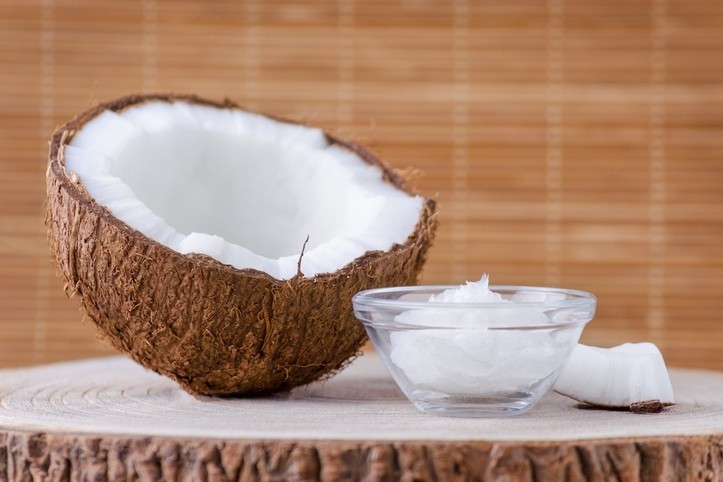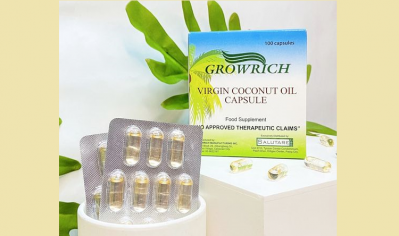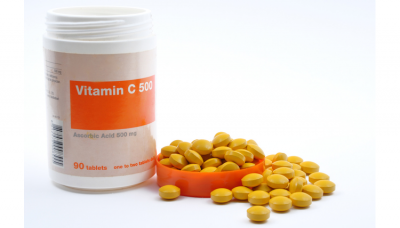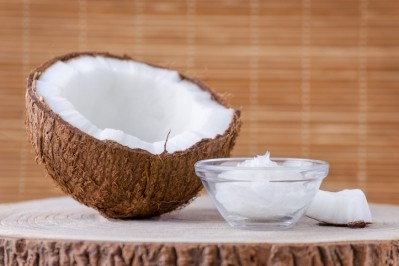Coconut and COVID-19: Philippines DOST-led study reveals virgin coconut oil reduce symptoms in suspected patients

Conducted by the Food and Nutrition Institute (FNRI) at DOST, the findings were presented in a virtual briefing by DOST Secretary Fortunato dela Peña.
The study recruited 57 suspected COVID-19 patients in two quarantine facilities in Laguna, Santa Rosa Community Hospital Isolation Unit and Santa Rosa Community Isolation Unit.
According to the country’s Department of Health, suspected COVID-19 patients are defined as the presence of symptoms including cough, cold, body ache, headache, loss of taste, fever as well as recent travel history.
Faster recovery
In the treatment group, 29 subjects were administered liquid VCO mixed with their meals for 28 days. Subjects were given 0.6mL of VCO/kg body weight for day 1 to 3, and increased to 1.2mL of VCO/kg body weight for day 4 to 28.
The other 28 subjects were the control.
According to project leader, Dr Imelda Angeles-Agdeppa, director of DOST-FNRI, the primary outcomes of the study were diminishing signs and symptoms such as better breathing, and lesser frequency of coughing, as well as lower levels of C-Reactive Protein (CRP).
Dr Angeles-Agdeppa told NutraIngredients-Asia that symptoms in the VCO group significantly reduced by day two, while the control group only saw symptoms reduced at day three.
In addition, the VCO group observed no symptoms by day 18, compared to day 23 in the control group.
“This result signals faster recovery in the VCO than in the control group, which is likely supported by the early improvement in the C-Reactive Protein (CRP) levels.”
CRP is a marker to identify inflammation in the body.
Anti-viral
Dr Angeles-Agdeppa said VCO’s anti-viral properties were its likely mechanism in reducing symptoms.
Coconut oil contains lauric acid and monolaurin which can disintegrate the virus envelope, inhibit virus replication, and prevent the binding of viral proteins to the host cell membrane.
“Through this study, it was hoped that VCO can be used as a supplement to improve the health condition of the individuals considered as suspect or probable cases and to also reduce the number of days of stay in the hospital or quarantine facility,” Dr Angeles-Agdeppa added.
Earlier in January 2021, Marco Reyes, president of the United Coconut Associations of the Philippines, urged the country to explore VCO as therapeutic for COVID-19 as well as a wide range of viruses that afflict humans.
It must be noted that VCO is not a cure, but an adjunct therapy that could prevent COVID-19 from becoming severe. This study was done on suspected COVID-19 patients, and not COVID-19 patients with a higher viral load and more severe symptoms.
The project team is currently working on publishing the clinical findings.
Upcoming clinical trials
DOST-PCHRD is currently monitoring a hospital study in Manila which will recruit 74 patients. The study is expected to complete by June 2021.
“The objective of the study is to determine the safety and efficacy of VCO as adjunctive therapy for COVID-19 cases specifically, the safety of VCO through clinical parameters such as lipid profile, fasting blood sugar and creatinine and the efficacy of VCO though recovery from symptoms and virus clearance.”
Besides VCO, DOST has also funded a melatonin study in COVID-19 patients.
According to Dr Jaime Montoya, executive director of the Philippine Council on Health Research and Development (PCHRD) at DOST, this is the first study on the use of high dose melatonin in COVID-19 patients with pneumonia.
“Melatonin is not a direct viricidal agent, but it may help neutralise the deleterious effects of the SARS-CoV-2 that causes COVID-19.”
“Melatonin may exert a beneficial role as adjuvant therapy in the regulation of the immune system, inflammation and oxidation stress, to mitigate the complications of acute lung injury/acute respiratory distress syndrome and related multi-organ complications.”
Elsewhere, Indonesia is also studying VCO as a potential adjuvant therapy in COVID-19 patients. Headed by Dr Ika Trisnawati of Gadjah Mada University, the randomised clinical trial will recruit 60 participants. The intervention group will be given 15mL of VCO twice a day for two weeks.






















